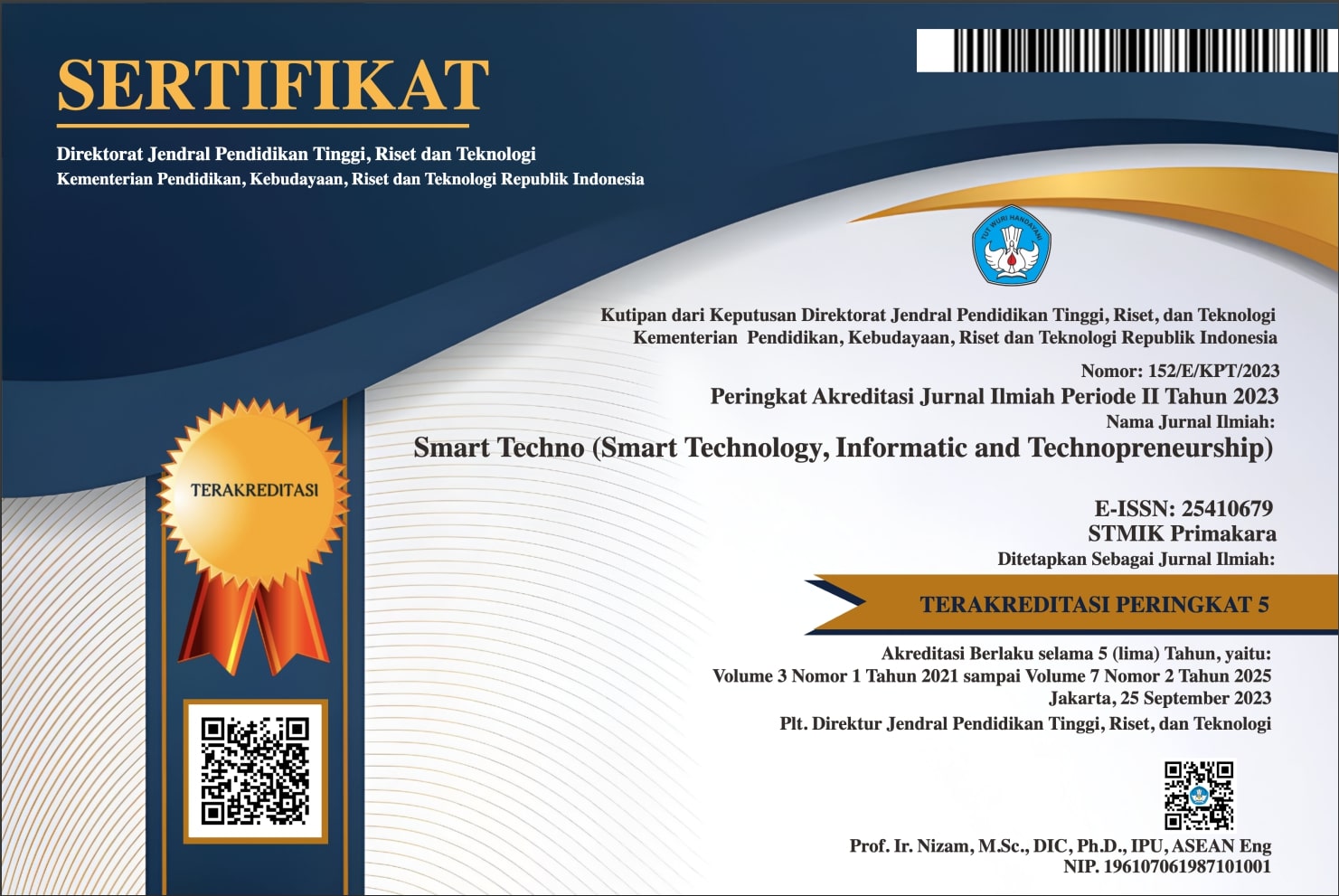Convolutional Neural Network-Based Human Stress Detection Using Multivariate Sensor Data and Cross-Validation
Abstract
Early identification of human stress levels plays a crucial role in promoting mental well-being and preventing related health issues. However, conventional stress assessment methods often involve multi-step procedures or subjective evaluations, making them inefficient and impractical for continuous monitoring. This study introduces a Convolutional Neural Network (CNN)-based approach to automatically detect human stress using multivariate sensor data, such as heart rate, oxygen saturation, body temperature, and movement signals. Unlike traditional machine learning methods that rely on handcrafted features and shallow classifiers, the proposed deep learning model leverages raw sensor data to learn hierarchical representations of physiological patterns associated with various stress levels. The dataset utilized in this research is the SaYoPillow dataset obtained from Kaggle, which includes labeled physiological signals based on subjective stress assessments. Input features are normalized and reshaped into one-dimensional sequences compatible with the CNN architecture. A stratified 5-fold cross-validation strategy is used to ensure robust and generalizable model performance. The proposed CNN model achieved an outstanding accuracy of 0.999, with a precision of 0.998, recall of 0.991, and F1 score of 0.994, outperforming baseline models such as Decision Tree with accuracy of 0.987 and Random Forest with accuracy of 0.981. These results highlight the CNN model’s strong potential for real-time, reliable stress monitoring using wearable sensors, making it a promising solution for digital health and well-being applications.
Downloads
References
Airlangga, G., Bata, J., Adi Nugroho, O. I., & Lim, B. H. P. (2025). Hybrid CNN-LSTM Model with Custom Activation and Loss Functions for Predicting Fan Actuator States in Smart Greenhouses. AgriEngineering, 7(4), 118. https://doi.org/10.3390/agriengineering7040118
Alzubaidi, L., Zhang, J., Humaidi, A. J., Al-Dujaili, A., Duan, Y., Al-Shamma, Farhan, L. (2021). Review of deep learning: Concepts, CNN architectures, challenges, applications, future directions. Journal of Big Data, 8(1), 53. https://doi.org/10.1186/s40537-021-00444-8
Arsalan, A., Majid, M., Nizami, I. F., Manzoor, W., Anwar, S. M., & Ryu, J. (2022). Human stress assessment: A comprehensive review of methods using wearable sensors and non-wearable techniques. arXiv preprint arXiv:2202.03033.
Guido, R., Ferrisi, S., Lofaro, D., & Conforti, D. (2024). An Overview on the Advancements of Support Vector Machine Models in Healthcare Applications: A Review. Information, 15(4), 235. https://doi.org/10.3390/info15040235
Gorriz, J. M., Segovia, F., Ramirez, J., Ortiz, A., & Suckling, J. (2024). Is K-fold cross validation the best model selection method for Machine Learning?. arXiv preprint arXiv:2401.16407.
Jegan, R., Mathuranjani, S., & Sherly, P. (2022). Mental Stress Detection and Classification using SVM Classifier: A Pilot Study. In 2022 6th International Conference on Devices, Circuits and Systems (ICDCS) (pp. 139-143).
Rachakonda, L., Bapatla, A., Mohanty, S., & Kougianos, E. (2021). SaYoPillow: Blockchain-Integrated Privacy-Assured IoMT Framework for Stress Management Considering Sleeping Habits. IEEE Transactions on Consumer Electronics, 67(1), 20-29.
Singh, S., & Hooda, S. (2023). A Study of Challenges and Limitations to Applying Machine Learning to Highly Unstructured Data. In 2023 7th International Conference On Computing, Communication, Control And Automation (ICCUBEA) (pp. 1-6).
White, J., & Power, S. D. (2023). k-Fold Cross-Validation Can Significantly Over-Estimate True Classification Accuracy in Common EEG-Based Passive BCI Experimental Designs: An Empirical Investigation. Sensors, 23(13), 6077. https://doi.org/10.3390/s23136077
Copyright (c) 2025 Asma' Abu Samah, Nor Fadzilah Abdullah

This work is licensed under a Creative Commons Attribution 4.0 International License.
Authors who publish with the Smart Techno agree to the following terms:
- Authors retain copyright and grant the journal the right of first publication with the work simultaneously licensed under a Creative Commons Attribution License (CC BY-SA 4.0) that allows others to share the work with an acknowledgment of the work's authorship and initial publication in this journal.
- Authors are able to enter into separate, additional contractual arrangements for the non-exclusive distribution of the journal's published version of the work (e.g., post it to an institutional repository or publish it in a book), with an acknowledgment of its initial publication in this journal.
- Authors are permitted and encouraged to post their work online (e.g., in institutional repositories or on their website) prior to and during the submission process, as it can lead to productive exchanges, as well as earlier and greater citation of published work. (See The Effect of Open Access)







